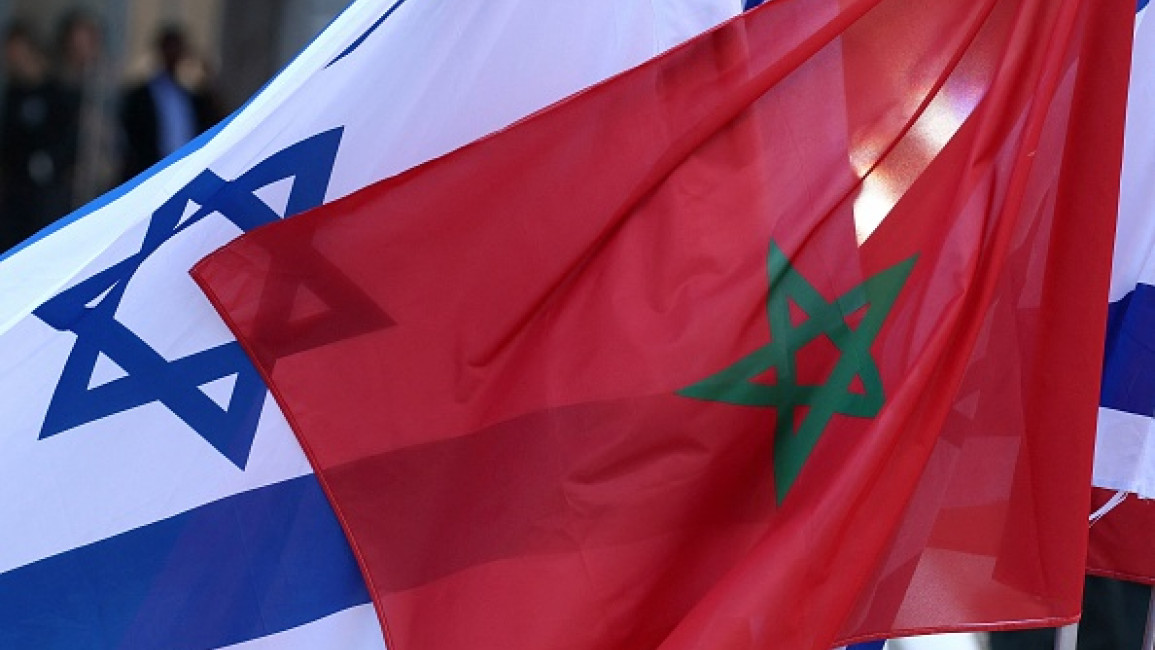
Israel, Morocco & Western Sahara: The price of normalisation
In a letter sent to Morocco’s King Mohamed VI by Israeli prime minister Benjamin Netanyahu, Israel recognizes the disputed territory of Western Sahara as part of Morocco, making Israel the second country after the US under the Trump administration, to do so.
Though the Kingdom of Morocco claims sovereignty over Western Sahara, several countries back the Polisario front - an indigenous Sahrawi nationalist movement which has been fighting for the territory’s independence since 1975. The announcement overturned international consensus that Western Sahara’s status should be settled by a United Nations referendum, as the UN has listed it as Non-Self-Governing Territory, and the Polisario as the legitimate representative of the Sahrawi people.
In reality, nothing short of a UN monitored referendum and the construction of the Maghreb Union can solve this conflict once for all. But the post-independence Maghrebi leaders, with their arrogance and egotism, have turned their back to that call for a union which emanated during the April 1958 Tangier Conference.
''Tens of thousands of Moroccans led by “The Moroccan Front for the Support of Palestine and Against Normalization” staged demonstrations in cities like Agadir, Beni Mellal, Casablanca, Meknes, and Tangier, and reaffirmed “their unconditional support for the Palestinian cause.”''
A history of Tensions
Western Sahara is a predominantly desert and arid territory which was under Spanish colonial rule. And in the late 1960s, the three Maghrebi (North African) nations - Algeria, Mauritania, and Morocco unanimously agreed to fast-track its decolonisation process. But this rational would quickly fizzle out because of the opposing interests of Algeria, Mauritania, and Morocco.
When Spain, the colonial ruler, withdrew from the territory and left its future uncertain, Morocco organised the “Green March.” A subterfuge that involved thousands of Moroccan civilians who were backed by Moroccan military units, and enabled Morocco to proclaim its sovereignty on the territory.
A year later, Morocco and Mauritania decided to partition Western Sahara. Mauritania occupied the southern part, with Morocco taking control of the northern two-thirds of the territory. As a result, the Polisario launched a guerrilla war in February 1976 against the forces of the two countries.
And after a war of attrition lasting three and a half years against the Polisario, Mauritania relinquished all claims to its portion, and recognised the Polisario as the sole legitimate representative of the people of Western Sahara. This victory would be temporary, however, because Morocco moved to occupy that portion abandoned by Mauritania, and has since asserted administrative control over most of the territory that it regards as the “Southern Provinces.”
Morocco exerts a de facto control over roughly 80% of the territory, and the Polisario controls the portion that stretches between the border wall that the Moroccan military built, and the actual border with Algeria.
Western Sahara has a population of half a million, but it is believed to have rich fishing waters along the Atlantic Ocean, considerable offshore oil deposits, and it homes huge mineral resources such as phosphate.
Needless to note that the US recognised Morocco's claim to Western Sahara in 2020 on condition of a resumption of diplomatic relations between Morocco and Israel. A decision that the Biden administration has decided not to challenge.
Though Morocco and Israel had low-level diplomatic relations in the 1990s that were interrupted by the 2000 Palestinian Intifada, the two countries normalised relations as part of the Abraham Accords, brokered by former President Donald Trump between Israel and the United Arab Emirates, Bahrain, and Sudan.
Solidarity in the face of normalisation
It should be mentioned that this normalisation was rejected by both Moroccans and Palestinians.
Tens of thousands of Moroccans led by “The Moroccan Front for the Support of Palestine and Against Normalization” staged demonstrations in cities like Agadir, Beni Mellal, Casablanca, Meknes, and Tangier, and reaffirmed “their unconditional support for the Palestinian cause.”
Palestinians also condemned the deal. For the Palestine Liberation Organization (PLO), “any Arab retreat from the (2002) Arab peace initiative, which stipulates that normalisation comes only after Israel ends its occupation of Palestinian and Arab lands, is unacceptable and increases Israel’s belligerence and its denial of the Palestinian people’s rights.”
Since the Abrahams Accord, several cooperation agreements, including a defence pact, have been signed between Morocco and Israel. And Israel's decision to recognise the disputed territory of Western Sahara comes in the midst of increased tensions between Morocco and Algeria, the two neighbouring countries having severed diplomatic ties in 2021.
The rivalry between Morocco and Algeria dates back to their independence. Many recall the Sand War that took place one year after Algeria’s independence from colonial France
Furthermore, Algeria as well as Qaddafi’s Libya before, provided military support to the Polisario Front, and also allowed its leaders, as well tens of thousands of Sahrawi refugees, to establish camps within Algeria.
Armed conflict between Morocco and Polisario Front, which blighted the lives of thousands of civilians, went on until the UN brokered a cessation of hostilities in 1991, and set up a peace-keeping mission to oversee the cease-fire and help organise a referendum on self-determination.
But the bone of contention so far has been the eligibility criteria. And this has precluded the referendum to take place, and exacerbated the volatile situation.
To crush a Sahrawi demonstration in November 2020, Morocco deployed its military forces. And in reaction to the belligerence, the Polisario Front declared the 29-year truce annulled, and the entire Western Sahara, with its land, sea, and airspace, are a “war zone.”
Due to mounting pressure from the international community, the kingdom supports limited autonomy, but the fear is that the ripe moment in the conflict has been reached, and that the territory might eventually become the theatre of an intense armed violence between the Moroccan military, the Polisario Front, and Algeria.
Dr. Abdelkader Cheref is an Algerian academic and a freelance journalist based in the US. As a former Fulbright scholar, he holds a PhD from the University of Exeter, Institute of Arab and Islamic Studies. His research interests are primarily politics in the MENA region, democratisation, Islam/Islamism, and political violence with a special focus on the Maghreb.
Follow him on Twitter: @Abdel_Cheref
Have questions or comments? Email us at: editorial-english@newarab.com
Opinions expressed in this article remain those of the author and do not necessarily represent those of The New Arab, its editorial board or staff.




